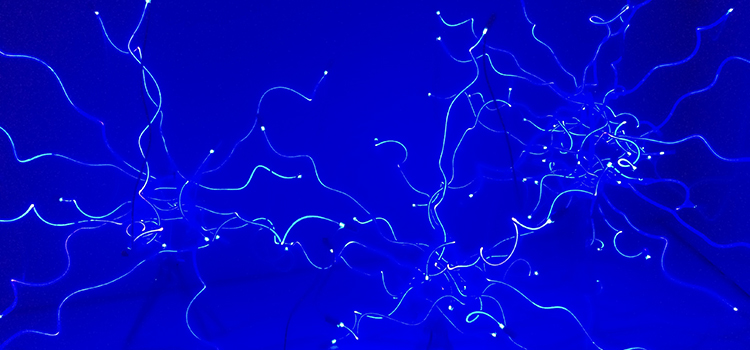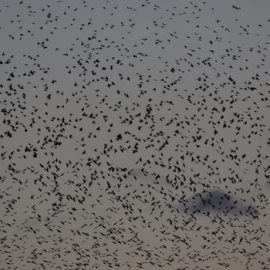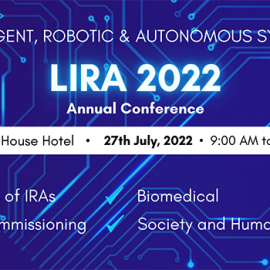
We warmly invite colleagues to join us for an in-person one-day symposium on Thursday 17th July 2025. To join, please register using the link below.
The event is organised by the Centre for Science Studies in collaboration with ImaginationLancaster and the Data Science Institute at Lancaster University, and is funded by the British Academy as part of Carolyn Pedwell’s Mid-Career Fellowship: ‘Speculative Machines and Us: The Making of Computational Cultures’ (2024-25).
NEW: Please see FULL PROGRAMME AND SPEAKER ABSTRACTS AND BIOS
The symposium includes contributions from the following speakers:
Keynote speaker
- Prof. Orit Halpern (Technische Universität Dresden)
Contributors
- Dr Aleena Chia (Goldsmiths, University of London)
- Dr M. Beatrice Fazi (University of Sussex)
- Prof Charlie Gere (Lancaster University)
- Dr Rolien Hoyng (Lancaster University)
- Dr Nathan Jones (Lancaster University)
- Prof Carolyn Pedwell (Lancaster University)
- Dr Jen Southern (Lancaster University)
In addition, the event will host the Shadowplay interactive installation by Dr Joseph Lindley and Dr Roger Whitham (Lancaster University).
Speculative Machines and Us: Histories and Futures of AI
The term ‘speculative machines’ references Alan Turing’s ‘universal machine’ (1936), yet it also indexes the speculative operations of emerging forms of generative AI. This one-day symposium will explore transnational genealogies of artificial intelligence and ‘the digital’ and consider how and why they matter to present and future AI imaginaries, research, and technologies – and their associated promises, threats, and potentialities. Event contributors are invited to trace backwards from the current focus on, and hype around, pre-trained transformer models and other machine learning technologies to re-engage past or alternative incarnations of AI and digital computing (i.e. cybernetics, post-war neural network research, logic-based and symbolic processing AI, early machine learning, “nouvelle AI” and robotics etc.) and their affective, cultural, socio-technical, political, economic, and ecological particularities, problematics, and, perhaps, ‘undetonated potential’ (Freeman, 2010). How were past visions of digital mediation linked to changing accounts of human sense perception and an ‘aesthetic infrastructure of sensorial training’ (Halpern, 2014: 15) – and with what contemporary resonances, impacts, or provocations?
Amid the increasing entanglement of data analytics, Big Tech, political authoritarianism, ecological extractivism, and neocolonial “common sense”, symposium participants may also wish to speculate on the biopolitical and geopolitical futures of generative AI – and their epistemological, ethical, and environmental implications. If our digital past(s) are not fixed or ‘lost’ but rather a ‘space for potential’ (Chun, 2021: 224), what alternative paths and possibilities for human-machine relations might such temporal experiments and explorations open up or activate? How might the afterlives of earlier forms of digital technology and mediation offer a rich archive from which to collaboratively intuit, design, refuse, or fabulate AI futures? Exploring these interdisciplinary themes and questions might include critical and creative engagement with media and cultural theory, science and technology studies, speculative design, computer science, informatics, human-computer interaction, critical data studies, digital humanities, media history, digital arts, digital archive studies, digital sociology and geography, and other relevant fields.
Speculative Machines and Us is funded by the British Academy, with support from the Centre for Science Studies, the Data Science Institute and ImaginationLancaster.
Event details
- Date: Thursday July 17th
- Times: 10am – 5pm, BST
- Location: A36, LICA Building, Lancaster University (see Lancaster’s campus maps and directions for more information)
- Register via Eventbrite no later than 10th July 2025.
Event organisers
Carolyn Pedwell, Joe Deville, and Nick Dunn, Lancaster University
For any queries contact Carolyn at c.e.pedwell@lancaster.ac.uk
Header image is based on a photograph taken by Carolyn Pedwell at the Royal Ontario Museum’s Chihuli exhibit, which ran from Jun 25, 2016 to Jan 8, 2017. Available to be reused under a CC BY-NC-SA 4.0 license.



